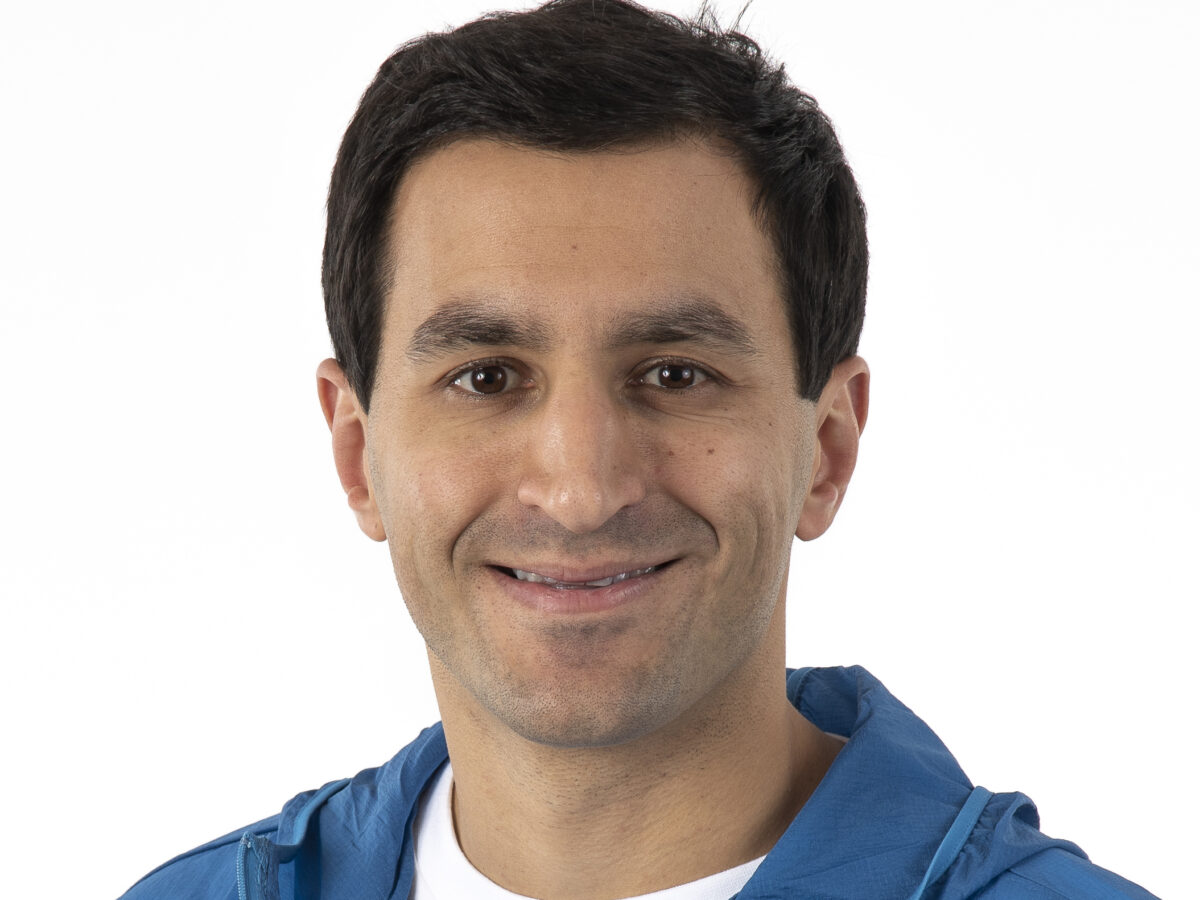Chris Davis: Best foot forward

Business owners across the country and the world shuttered their shops in March following government mandates to control the spread of the coronavirus. They placed restrictions on corporate travel and developed remote workflow and social-distancing protocols to further safeguard the health of their employees who remained on the job.
And some enterprising leaders took this volatile juncture of economic uncertainty to move beyond the reactionary and rethink what their companies could do for the public good. Among them: Chris Davis ’04, chief marketing officer and senior vice president of merchandising for New Balance, a Davis family business since 1972.
“Whether you have the ability to help on an individual basis or through donating your time or with a larger organization, these are the moments where we need to all band together,” he says. “If you have the capability to rise, we believe that you should. It’s really our civic duty.”
Opportunity arose when the Boston-based sneaker and sports apparel company got calls from Massachusetts General Hospital and state officials asking if it could produce personal protective equipment, or PPE, for essential workers. It was a no-brainer, of course, the company would help, Davis says — it just needed to figure out how.
New Balance immediately assembled a brainstorming team to see what was possible to make on their existing factory equipment. After considering gowns, face shields and shoe coverings, they decided on single-use face masks, commodities that were in high demand and low supply at the onset of the virus.
Each day, the New Balance team constructed multiple prototypes that were sent to MGH or Brigham and Women’s Hospital for testing. Based on feedback from doctors and nurses, the team made modifications, ultimately producing a five-ply laminated fabric mask with elastic shoelaces as the adjustable straps. A design process that would normally require months was completed in a week.

“People were passionate about contributing to the cause internally and so we willed our way in a matter of days to transform our lines from making shoes to masks,” Davis says. “It was a huge effort with our development teams and supply chain teams, but it was realized relatively quickly through great partners at Mass General, Harvard Medical and MIT’s Langer Lab.” Since mid-June, New Balance has produced about 200,000 masks.
Davis attributes the company’s rapid response to “a culture of entrepreneurship” that New Balance strives for during normal courses of business. “We will never be a brand that talks about what we are going to do, we are going to be a brand that talks about what we do do,” Davis says. “And I think that the learning methods at Exeter, the kind of problem solving, critical-thinking skills and action I was taught, directly correlate to moments like this one.”
Another reason New Balance was able to adapt quickly to the pandemic was intel gleaned from its supply-chain offices abroad. “The coronavirus impacted our China office months earlier than it did the Western part of the world, so we were able to utilize the learnings from Asia and appropriately prepare for employee safety,” Davis says. “We actually had a couple of test days of working from home to ensure that our technology was able to withhold the capacity and the volume of everybody streaming constantly and working digitally.” New Balance closed its stateside offices before Massachusetts Gov. Charlie Baker passed state-mandated closures.
While the virus has exposed some of our country’s deepest shortcomings, it has also spawned new modes of thinking and ways of caring for others. For its part, New Balance won’t be going back to business as usual.
“We adjusted to the new environment — we created a new infrastructure, new goals, new parameters,” Davis says. “We’ve reconstructed our ways of working, which are very analogous to how Exeter is constructed around the Harkness table and just that notion of teamwork and positionless learning. … The whole team has really rallied around bringing risk, innovation and evolution to the table, which I couldn’t be more proud of.”
— Jennifer Wagner
Editor’s note: This article first appeared in the summer 2020 issue of The Exeter Bulletin.